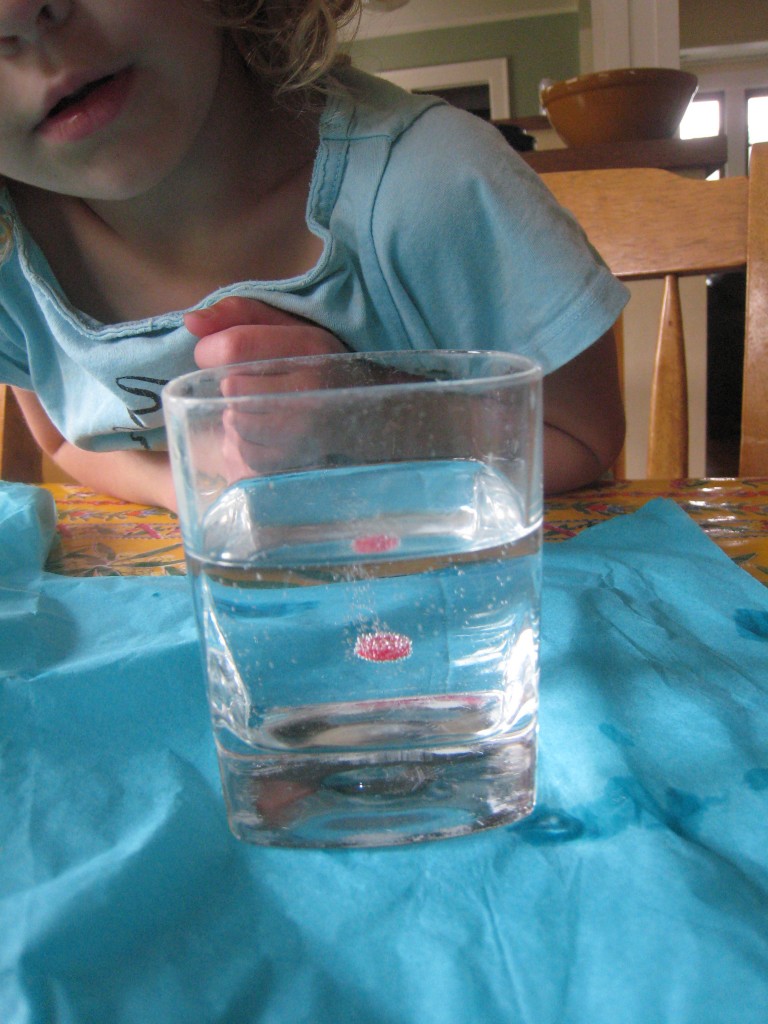Tag: float’
Buttons Afloat
- by KitchenPantryScientist
Here’s a quick experiment for bored kids:
You’ll need a button, a glass, water, and a carbonated beverage.
Pour some water in the glass. Drop the button in. What happens?
If it sinks*, dump the water out and fill the glass with carbonated beverage. Drop the button in. Now what happens?
The button is more dense than the water and sinks in uncarbonated water, but in a carbonated beverage, carbon dioxide bubbles form on the button and make it buoyant, so it floats to the top.
What other sinking objects can you make float with carbonation?
If your kids like this, check out this Float or Sink experiment that even very young kids can do!
*If your button floats, the experiment won’t work, so try to find one that sinks!
Float or Sink
- by KitchenPantryScientist

You’re never too young to enjoy a good science experiment. This is a great project that requires very few supplies and very little effort for adult involved. It’s easy enough for a toddler to do and is a perfect activity for a cold or rainy day.
-Fill up a large bowl or tub with as much water as you’re comfortable cleaning up. (Safety Mama, if there were one, would remind you to always supervise young children around any amount of water!)
-Place a large towel under the bowl on some waterproof surface. (The kitchen floor works very well for us.)
-Have your child find several small objects around the house that they’d like to use in the experiment. Suggest they find some things that they think will float and some they think will sink. Do a quick check to make sure they won’t destroy anything that you want to keep dry.
-Ask them whether they think the object will float or sink and then let them try it out.
If they want, they can make a chart of their predictions and the results. Your child’s science notebook would be a great place to do this! (see science notebook post if you don’t already have one!)
Here’s some science for you parents, in case your kids want to know what’s happening. You can impress them with your vast knowledge:
One way to see how density affects things is to look at how things sink or float in water.
If something is more dense that water, it will sink, and if less dense than water, it will float.
In case they ask, which they always do:
Density is a measure of how much mass is contained in a given unit volume. Put simply, if mass is a measure of how much ‘stuff’ there is in an object, density is a measure of how tightly that ‘stuff’ is packed together.
Or, just tell them they’ll learn about it in science class someday!
